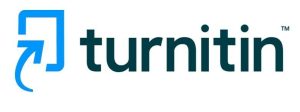
As Turnitin celebrates the first anniversary of its groundbreaking AI writing detection feature, the educational landscape is reflecting on a year of profound change and adaptation. Launched in April 2023, this innovative tool has now scrutinized over 200 million student papers worldwide, unveiling the nuanced role of AI in academic submissions. This milestone not only underscores the feature’s success but also highlights the ongoing conversation around technology’s place in education.
Turnitin’s data reveals a fascinating insight: approximately 11 percent of the papers reviewed contained at least 20 percent AI-generated content, while around three percent boasted a staggering 80 percent or more. These statistics illuminate the pervasive influence of AI tools in student work, emphasizing the necessity for educational institutions to evolve with these technological advancements.
Annie Chechitelli, Turnitin’s Chief Product Officer, encapsulates the current educational ethos, stating, “We’re at an important juncture in education where technologies are transforming learning and the need for academic integrity is more critical than ever.” This statement not only champions the achievements of Turnitin’s AI detection tool but also calls for a balanced approach to incorporating AI in educational settings.
Turnitin’s commitment to fostering academic integrity in the digital age is evident in its proactive response to the AI writing trend. Recognizing the complexities of integrating AI into educational frameworks, Turnitin advocates for a multifaceted strategy. This includes encouraging open dialogues between educators and students about the ethical use of AI writing tools, revisiting academic policies, and innovating assignment design to uphold integrity while embracing technological progress.
The relevance of this approach is further supported by a recent study from Tyton Partners, revealing nearly half of the surveyed students regularly utilize generative AI tools, such as ChatGPT. Interestingly, 75 percent of these students intend to continue using AI technologies, regardless of institutional restrictions. This underscores the growing acceptance and utility of AI in academic processes, suggesting that outright bans may not be the most effective response.
Turnitin’s AI writing detection feature has not only been instrumental in identifying AI-generated content but has also been celebrated for its contribution to education technology. It has received accolades, including a nomination for the 2024 Bett Awards in the “AI in education” category and being named Best in Show at ISTE 2023 by Tech & Learning. These honors reflect the industry’s recognition of Turnitin’s efforts to navigate the challenges and opportunities presented by AI in academia.
Reflecting on a year since its introduction, Turnitin’s AI detector stands as a testament to the company’s dedication to innovation and integrity in education. As educators and institutions worldwide continue to grapple with the implications of AI-generated content, Turnitin’s technology offers a beacon of guidance, ensuring that academic integrity remains at the forefront of educational advancement.
With a legacy spanning over 25 years, Turnitin remains committed to enhancing the integrity and quality of education across the globe. Its suite of tools, including the AI writing detector, empowers educators and students alike to navigate the complexities of modern academic environments, promoting a culture of honesty, consistency, and fairness in every classroom.